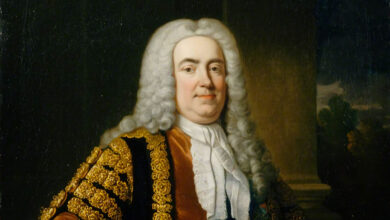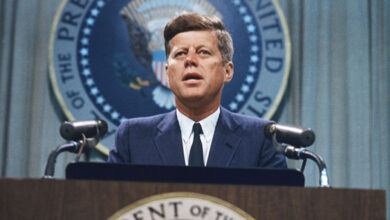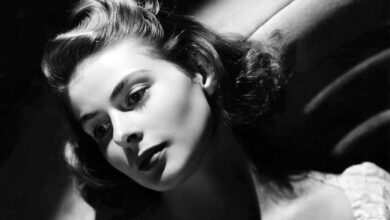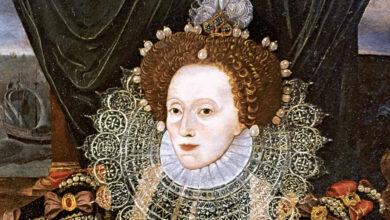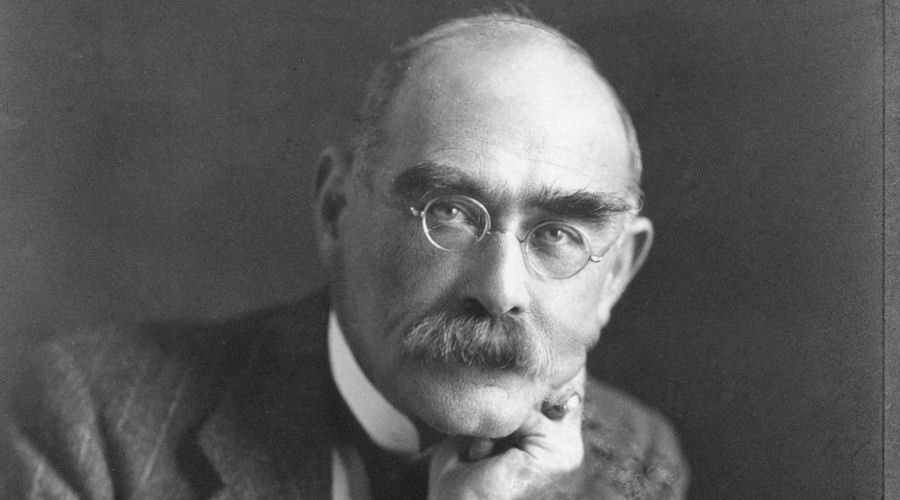
“A woman’s guess is much more accurate than a man’s certainty.” – Rudyard Kipling.
Podcast: Play in new window | Download
Subscribe: Spotify | Amazon Music | Youtube Music | RSS
Rudyard Kipling Biography
Joseph Rudyard Kipling was born on 30 December 1865 in Mumbai, then called Bombay, in India. John Lockwood Kipling, his father, was a sculptor and pottery designer whereas his mother, Alice, was the daughter of a Wesleyan Methodist minister. After the couple met in 1863, they courted at Rudyard Lake in Staffordshire, England, and they were so taken by the beauty of the place that it featured in the name of their first child.
The custom in British India at the time was to send children back to England for their education and so it was that in 1871, Rudyard, who was only five years old and his sister Alice, who was three, were sent to stay with Captain Pryse Agar Holloway, an ex-officer of the merchant navy and Mrs. Sarah Holloway. Rudyard remembered in his autobiography that the next six years of his life were filled with cruelty, neglect, and bullying. Trix, as his sister was known, was treated better, probably because Mrs. Holloway had designs on her one day marrying her son. Relief from life at the Holloway’s in Southsea came for Rudyard for a month every Christmas, when the two children spent time with their aunt Georgiana in Fulham, London. Compared to Southsea, Rudyard thought the place was paradise.
In 1877, the torture would be over though as Alice returned from India and removed the children. The following year, Rudyard Kipling was admitted to the United Services College in Devon. This was a new school which had been set up to prepare boys for a life in the British Army. His time there influenced two of his future works. The schoolboy series Stalky & Co which was published in 1899 takes from his experiences at USC and the character of Maisie in his first novel entitled The Light that Failed is based upon Florence Gerrard who was boarding with Trix, and whom Kipling had fallen in love with.
However, Rudyard Kipling lacked the academic skills to get into Oxford on a scholarship and his parents lacked the finances to buy him a place and so his father, who was Principal at the Mayo College of Art and Curator of the Lahore Museum arranged a job for him as assistant editor of the Civil & Military Gazette, a small local newspaper in Lahore, which is now in Pakistan. Kipling left England on 20 September 1882 and arrived in Bombay a month later.
Kipling was worked hard at the Gazette but this didn’t seem to be a problem for a man with such a love for writing. When a new editor took over in 1886, he was given more creative freedom and was asked to contribute short stories. Between 1885 and 1888, Rudyard Kipling went to Simla each year for his annual leave and the town, which became a center of power in India for six months of the year, features quite strongly in his stories.
In November 1887, Kipling became assistant editor at the Gazette’s larger sister paper, the Pioneer. He remained just as prolific, though, turning out 41 short stories in six collections in 1888. His time at the Pioneer was short though and after a dispute, he was discharged of his duties there in 1889. Kipling sold the rights to his stories and with the proceeds, along with six months’ salary in lieu of notice from the paper, he decided to return to London.
His route back to London was not a direct one. He first headed for San Francisco via Japan, Hong Kong, Singapore, and Rangoon. He was particularly impressed with Japan, writing that the Japanese were gracious folk. His arrival in San Francisco was just the start of a tour of the United States and Canada. On his travels, he saw Niagara Falls and met Mark Twain. He visited New York, Boston, Washington D.C., Salt Lake City, and Yellowstone National Park. At the end of his tour he set sail across the Atlantic and arrived in Liverpool in October 1889.
He made his way to London and took up residence in Villiers Street, near Charing Cross and had a number of short stories published in magazines. He also wrote a novel during the next two years called The Light that Failed. He had also had a nervous breakdown during this time and on the advice of doctors set sail again for another tour in 1891. This time he visited places as far apart as South Africa, Australia, and New Zealand before once again returning to India. He had planned to spend Christmas with his family in India, but upon hearing the news of the death of his publishing agent Wolcott Balestier, he decided to return to London. Before he left, he used the telegraph to propose to Balestier’s sister, Caroline Starr Balestier, who accepted. Also in late 1891, his collection of short stories, Life’s Handicap, about the British in India was published in London.
At All Souls Church in Langham Place, London, on 18 January 1892, Rudyard Kipling and Carrie Balestier were married. He was 26 and she was 29 years old.
The couple went on a honeymoon that would take in the United States and Japan during which time Carrie became pregnant with their first child. Josephine was born in a rented home in Battleboro, Southern Vermont, which they called Bliss Cottage, on 29 December 1892. During their time in Japan, they had learned that their bank had failed, but they managed well enough on second-hand and third-hand materials with which they furnished the cottage. During his time at Bliss Cottage, Rudyard Kipling started to put pen to paper and began to form ideas into what would become the two Jungle Books.
Now that Josephine had arrived, it was decided that the cottage was too small, and so the couple purchased ten acres of land from Carrie’s brother and they built a house on a rocky hillside overlooking the Connecticut River. This house was called Naulakha in reference to a piece of work Rudyard had collaborated on with Wolcott Balestier. Rudyard Kipling was settled and happy in his new secluded surroundings and was as prolific in his writing as ever. Over only a four year period he produced six books; the two Jungle Books, a collection of short stories, a novel called Captains Courageous and lots of poetry. The Barrack-Room Ballads which was a collection of works that was first published individually in 1890 was published in March of 1892 and contained his poems Mandalay and Gunga Din.
In the February of 1892, Carrie and Rudyard’s second daughter, Elsie was born.
Four years later, owing to a mix of anti-British feeling at the time in the United States due to disputes over the sovereignty of Venezuela, and a breakdown in family relationships owing to Carrie’s brother’s insolvency and over indulgence in alcohol, the couple decided to leave their idyllic Vermont life behind and return to England.
So, by September of 1896, the Kiplings had relocated to Torquay in Devon where they found another hillside home, this time overlooking the English Channel. The following year, their first son, John arrived.
The Kiplings still enjoyed travel and would take their Winter holiday in South Africa every year until 1908. He wrote articles and poetry during this time that were heavily influenced by the political climate at the time, which included the Second Boer War, which took place between 1899 and 1902.
In 1897, Rudyard Kipling moved again, this time to Sussex and moved to several different houses within the county, finally settling on one called Bateman’s which had been built in 1634. It was located in Burwash, which is about halfway between Royal Tunbridge Wells and Hastings. He lived there from 1902 until his death in 1936.
In 1899, the Kiplings visited the United States again, but while they were there, both Rudyard and his daughter Josephine developed pneumonia. Unfortunately, Josephine died, aged only six.
After his daughter’s death, Kipling collected a number of children’s stories, which was published in 1902 as Just So Stories for Little Children.
As the new century progressed through its first decade, Rudyard Kipling was at the height of his powers. He wrote songs, poetry, and science fiction stories and in 1907 received the Nobel Prize for Literature. Due to his rising influence, he became more outspoken on political issues and is credited with turning public opinion against the liberal government that signed the reciprocity agreement with the United States. He also was a supporter of the anti-Home Rule stance of the Irish Unionists.
At the start of the First World War, Rudyard Kipling wrote poems and pamphlets in support of Britain’s war aims, as did many others. He was asked by the British government to write propaganda which he was enthusiastic about doing.
In September 1915, at the age of 18, Rudyard Kipling’s son John was killed in action at the Battle of Loos, and Kipling was devastated by his loss.
After the war, he joined Sir Fabian Ware’s Imperial War Graves Commission, the group responsible for the establishment of British war graves along the Western Front, and he chose the inscription, “The Glorious Dead” on the Cenotaph in Whitehall, London.
In 1920, Kipling co-founded the Liberty League which focused on promoting classic liberal ideals in response to the rise of Communist ideals in Britain.
Rudyard Kipling continued writing well into the 1930’s although the pace slowed somewhat. On 12 January 1936, he suffered a bleed on his small intestine. He had surgery to correct the problem but less than a week later, on 18 January, Kipling died at the age of 70 from a perforated duodenal ulcer. Pallbearers at his funeral included the British Prime Minister, Stanley Baldwin. He was cremated and his ashes were buried in poet’s corner in Westminster Abbey alongside Charles Dickens and Thomas Hardy.
Podcast: Play in new window | Download
Subscribe: Spotify | Amazon Music | Youtube Music | RSS

